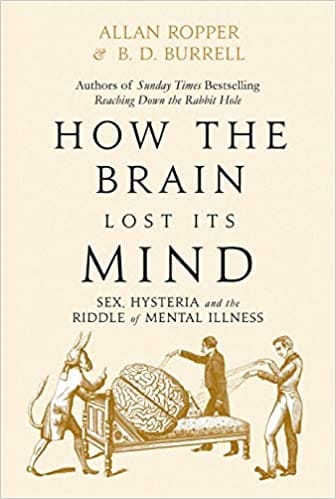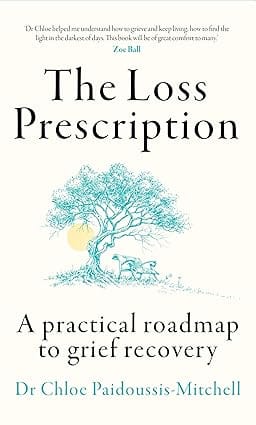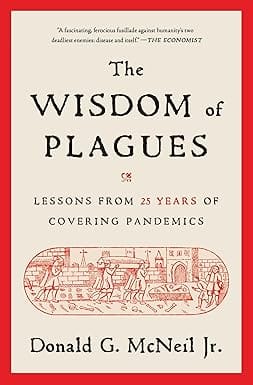WELCOME TO MIDLAND BOOK SHOP!
SHOP FOR
- Non-ficton
- Non-ficton
- Contemporary Fiction
- Contemporary Fiction
- Children
- Children
- Comics & Graphic Novels
- Comics & Graphic Novels
- Non-Fiction
- Non-Fiction
- Fiction
- Fiction
Shop No.20, Aurobindo Palace Market, Hauz Khas, Near Church +91 9818282497 | 011 26867121 110016 New Delhi IN
Midland The Book Shop ™
Shop No.20, Aurobindo Palace Market, Hauz Khas, Near Church +91 9818282497 | 011 26867121 New Delhi, IN
+919871604786 https://www.midlandbookshop.com/s/607fe93d7eafcac1f2c73ea4/677cda367903fd013d69b606/without-tag-line-480x480.png" [email protected]9781786491817 61f92376efffdbf4c61f14de How The Brain Lost Its Mind https://www.midlandbookshop.com/s/607fe93d7eafcac1f2c73ea4/61f92378efffdbf4c61f158b/41nuo-xe5ul-_sx334_bo1-204-203-200_.jpg 9781786491817
A noted neurologist challenges the widespread misunderstanding of brain disease and mental illness. How the brain lost its mind tells the rich and compelling story of two confounding ailments, syphilis and hysteria, and the extraordinary efforts to confront their effects on mental life. How does the mind work? Where does madness lie, in the brain or in the mind? How should it be treated? Throughout the nineteenth century, syphilis-aa disease of mad poets, musicians, and artists-sweptt through the highest and lowest rungs of European society like a plague. Known as "the great imitator," It could produce almost any form of mental or physical illness, and it would bring down a host of famous and infamous characters-amongg them guy de Maupassant, Vincent Van Gogh, the Marquis de sade, Friedrich Nietzsche, and al Capone. It was the first truly psychiatric disease and it filled asylums to overflowing. At the same time, an outbreak of bizarre behaviors resembling epilepsy, but with no identifiable source in the body, strained the diagnostic skills of the great neurologists. It was referred to as hysteria. For more than a century, neurosyphilis stood out as the archetype of a brain-based mental illness, fully understood but largely forgotten, and today far from gone. Hysteria, under many different names, remains unexplained and epidemic. These two conditions stand at opposite Poles of the current debate over the role of the brain in Mental illness. Hysteria led Freud to br>Insert sex into psychology. Neurosyphilis led to the proliferation of mental institutions. The problem of managing the inmates led to the abuse of lobotomy and electroshock therapy, and ultimately the overuse of Psychotropic drugs. Today we know that syphilitic madness was a destructive disease of the brain while hysteria and, more broadly, many varieties of mental illness reside solely in the mind. Or do they? Afflictions once written off as "hysterical" Continue to elude explanation. Addiction, alcoholism, autism, ADHD, tourette syndrome, depression, and sociopathy, though regarded as brain-based, have not been proven to be so. In these pages, the authors raise a host of philosophical and practical questions. What is the difference between a sick mind and a sick brain? If we understood everything about the brain, would we understand ourselves? By delving into an overlooked history, this book shows how neuroscience and brain scans alone cannot account for a robust mental life, or a deeply disturbed one.
Review
Ropper and Burrell have written an insightful, fantastically readable analysis of what was once called "hysteria." Also, by studying how things can go wrong, we learn a great deal about the working of the human mind when things go right. * Elizabeth Loftus, author of Eyewitness Testimony * Through tales of eminent physicians and their suffering patients, replete with sex, drugs, and magnetically-induced hypnotism, we learn how a bacterium that deprived countless souls of their reason also helped scientists discover a role for brain biology in mental illness. * Alan Jasanoff, PhD, author of The Biological Mind * This aptly titled book picks up where Oliver Sacks left off in examining the behavioral characteristics of neurobehavioral syndromes in an effort to span the gap that has historically separated the twin disciplines of the brain, neurology and psychiatry. * Jeffrey A. Lieberman, author of Shrinks: The Untold Story of Psychiatry * Rich, compassionate and passionate... Sceptical of the excesses of both psychological and biological reductionism, it is a refreshing call for an intellectual reset and disciplinary rapprochement. -- Anne Harrington * Nature * Central to this book is the ongoing dispute regarding which mental illnesses can be attributed to physical abnormalities within the brain and which originate in the mind, or consciousness. The authors emphasise that in many cases we still cannot be sure... Along the way, their investigations exhume some unforgettable scenes and characters... Fascinating * Mail on Sunday * A rollicking ride, patient by patient, through the history of two conditions, hysteria and neurosyphilis. * The Times * Absorbing and scholarly... A twin biography of psychiatry and neurology, their study charts this uneasy relationship from marriage to divorce to reconciliation even as fundamental questions about the nature of mental illness remain... Hugely entertaining. * Guardian *
About the Author
Dr Allan H. Ropper is Professor of Neurology at Harvard Medical School and Raymond D. Adams Master Clinician of the Department of Neurology at Brigham and Women's Hospital. He is also a deputy editor of the New England Journal of Medicine and a fellow of the American Academy of Neurology, Royal College of Physicians, and the American College of Physicians. Dr Ropper is an author of the most widely consulted textbook of neurology, Principles of Neurology, currently in its eleventh edition, and co-author with B.D. Burrell of Reaching Down the Rabbit Hole. B.D. Burrell is a member of the mathematics faculty at the University of Massachusetts Amherst. A teacher and writer, he is the author is several books, including Postcards from the Brain Museum, The Words We Live By, and, jointly with Dr Allan H. Ropper, Reaching Down the Rabbit Hole.
out of stock INR 559
1 1
Email ID already exists!
Your Current password is incorrect
Password Updated Successfully
Thanks for your Feedback
How The Brain Lost Its Mind
ISBN: 9781786491817
₹559
₹699 (20% OFF)SIZE GUIDE
Back In Stock Shortly - Fill The Book Request Form
Sold By: Hauz Khas - Aurobindo Market
Details
- ISBN: 9781786491817
- Author: Allan Ropper and Brian Burrell
- Publisher: Atlantic
- Pages: 288
- Format: Paperback
Book Description
A noted neurologist challenges the widespread misunderstanding of brain disease and mental illness. How the brain lost its mind tells the rich and compelling story of two confounding ailments, syphilis and hysteria, and the extraordinary efforts to confront their effects on mental life. How does the mind work? Where does madness lie, in the brain or in the mind? How should it be treated? Throughout the nineteenth century, syphilis-aa disease of mad poets, musicians, and artists-sweptt through the highest and lowest rungs of European society like a plague. Known as "the great imitator," It could produce almost any form of mental or physical illness, and it would bring down a host of famous and infamous characters-amongg them guy de Maupassant, Vincent Van Gogh, the Marquis de sade, Friedrich Nietzsche, and al Capone. It was the first truly psychiatric disease and it filled asylums to overflowing. At the same time, an outbreak of bizarre behaviors resembling epilepsy, but with no identifiable source in the body, strained the diagnostic skills of the great neurologists. It was referred to as hysteria. For more than a century, neurosyphilis stood out as the archetype of a brain-based mental illness, fully understood but largely forgotten, and today far from gone. Hysteria, under many different names, remains unexplained and epidemic. These two conditions stand at opposite Poles of the current debate over the role of the brain in Mental illness. Hysteria led Freud to br>Insert sex into psychology. Neurosyphilis led to the proliferation of mental institutions. The problem of managing the inmates led to the abuse of lobotomy and electroshock therapy, and ultimately the overuse of Psychotropic drugs. Today we know that syphilitic madness was a destructive disease of the brain while hysteria and, more broadly, many varieties of mental illness reside solely in the mind. Or do they? Afflictions once written off as "hysterical" Continue to elude explanation. Addiction, alcoholism, autism, ADHD, tourette syndrome, depression, and sociopathy, though regarded as brain-based, have not been proven to be so. In these pages, the authors raise a host of philosophical and practical questions. What is the difference between a sick mind and a sick brain? If we understood everything about the brain, would we understand ourselves? By delving into an overlooked history, this book shows how neuroscience and brain scans alone cannot account for a robust mental life, or a deeply disturbed one.
Review
Ropper and Burrell have written an insightful, fantastically readable analysis of what was once called "hysteria." Also, by studying how things can go wrong, we learn a great deal about the working of the human mind when things go right. * Elizabeth Loftus, author of Eyewitness Testimony * Through tales of eminent physicians and their suffering patients, replete with sex, drugs, and magnetically-induced hypnotism, we learn how a bacterium that deprived countless souls of their reason also helped scientists discover a role for brain biology in mental illness. * Alan Jasanoff, PhD, author of The Biological Mind * This aptly titled book picks up where Oliver Sacks left off in examining the behavioral characteristics of neurobehavioral syndromes in an effort to span the gap that has historically separated the twin disciplines of the brain, neurology and psychiatry. * Jeffrey A. Lieberman, author of Shrinks: The Untold Story of Psychiatry * Rich, compassionate and passionate... Sceptical of the excesses of both psychological and biological reductionism, it is a refreshing call for an intellectual reset and disciplinary rapprochement. -- Anne Harrington * Nature * Central to this book is the ongoing dispute regarding which mental illnesses can be attributed to physical abnormalities within the brain and which originate in the mind, or consciousness. The authors emphasise that in many cases we still cannot be sure... Along the way, their investigations exhume some unforgettable scenes and characters... Fascinating * Mail on Sunday * A rollicking ride, patient by patient, through the history of two conditions, hysteria and neurosyphilis. * The Times * Absorbing and scholarly... A twin biography of psychiatry and neurology, their study charts this uneasy relationship from marriage to divorce to reconciliation even as fundamental questions about the nature of mental illness remain... Hugely entertaining. * Guardian *
About the Author
Dr Allan H. Ropper is Professor of Neurology at Harvard Medical School and Raymond D. Adams Master Clinician of the Department of Neurology at Brigham and Women's Hospital. He is also a deputy editor of the New England Journal of Medicine and a fellow of the American Academy of Neurology, Royal College of Physicians, and the American College of Physicians. Dr Ropper is an author of the most widely consulted textbook of neurology, Principles of Neurology, currently in its eleventh edition, and co-author with B.D. Burrell of Reaching Down the Rabbit Hole. B.D. Burrell is a member of the mathematics faculty at the University of Massachusetts Amherst. A teacher and writer, he is the author is several books, including Postcards from the Brain Museum, The Words We Live By, and, jointly with Dr Allan H. Ropper, Reaching Down the Rabbit Hole.
User reviews
NEWSLETTER
Subscribe to get Email Updates!
Thanks for subscribing.
Your response has been recorded.

India's Iconic & Independent Book Store offering a vast selection of books across a variety of genres Since 1978.
"We Believe In The Power of Books" Our mission is to make books accessible to everyone, and to cultivate a culture of reading and learning. We strive to provide a wide range of books, from classic literature, sci-fi and fantasy, to graphic novels, biographies and self-help books, so that everyone can find something to read.
Whether you’re looking for your next great read, a gift for someone special, or just browsing, Midland is here to make your book-buying experience easy and enjoyable.
We are shipping pan India and across the world.
For Bulk Order / Corporate Gifting
 +91 9818282497 |
+91 9818282497 |  [email protected]
[email protected]
Click To Know More
INFORMATION
QUICK LINKS
ADDRESS
Midland Book Shop - Hauz Khas
Shop No.20, Aurobindo Palace Market, Near Church, New Delhi
Shop No.20, Aurobindo Palace Market, Near Church, New Delhi














